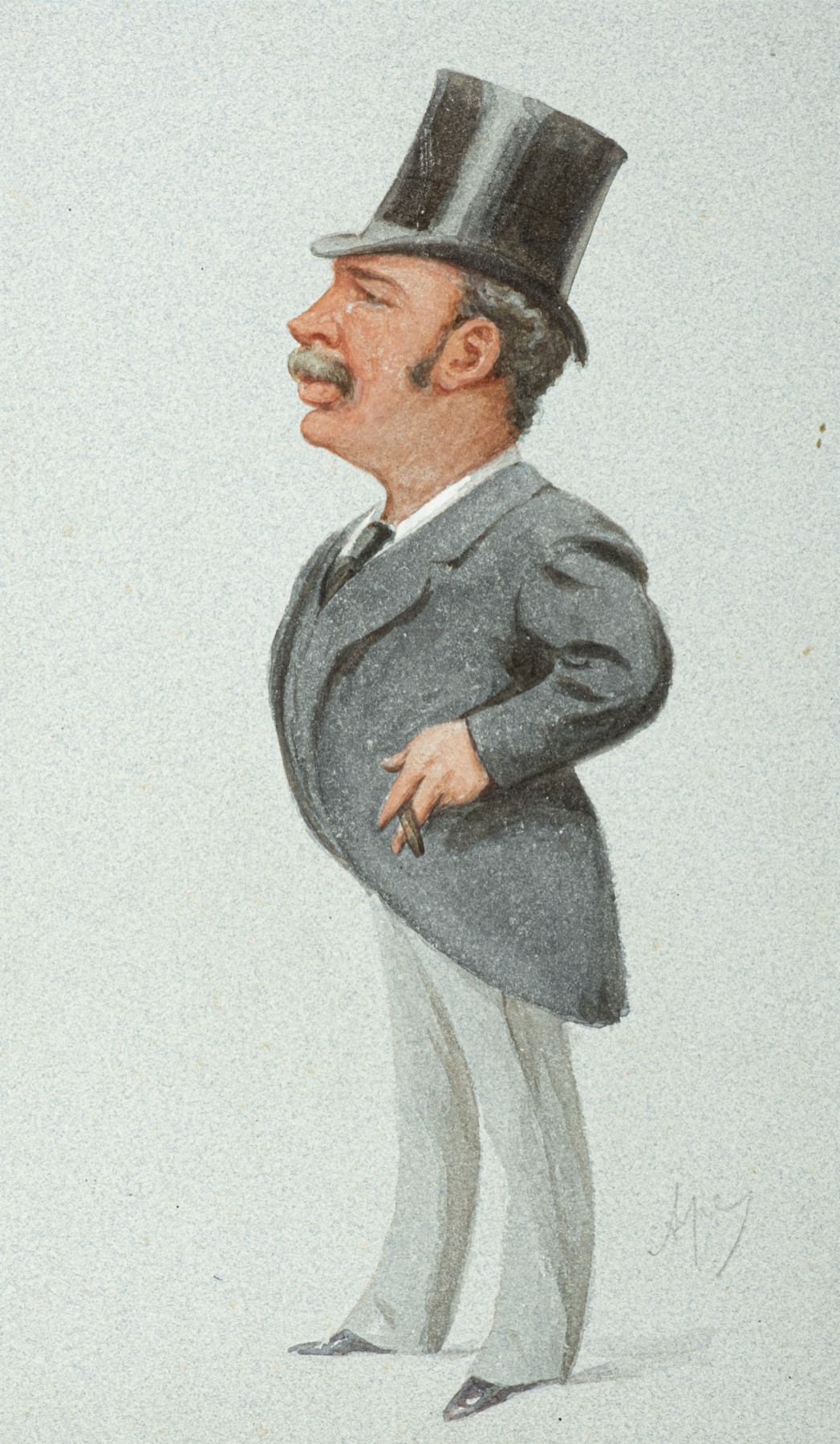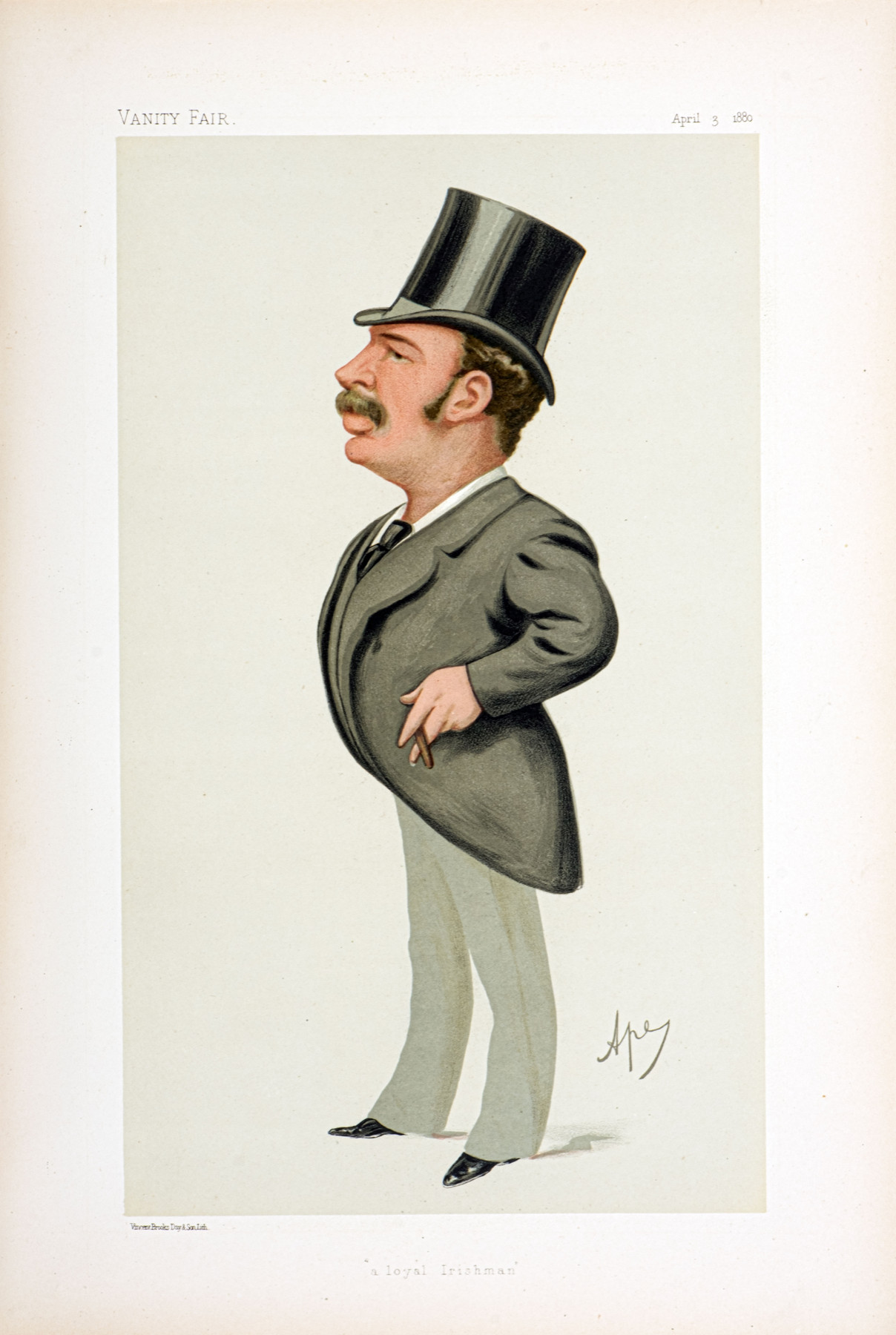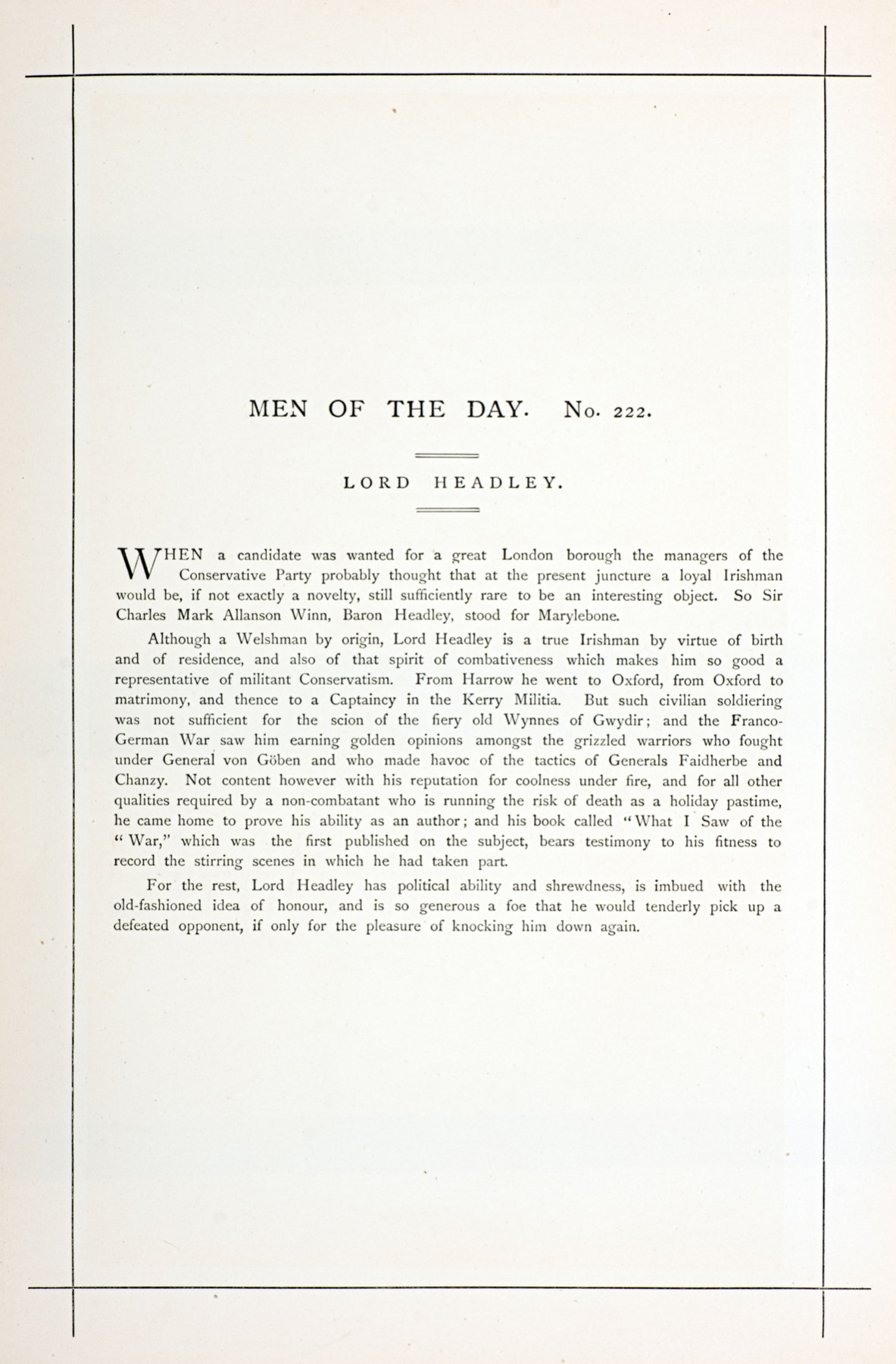


Sir Charles Mark Allanson Winn (1845-1913) was educated at Harrow and University College, Oxford. As a young man, it appears that he travelled to France and Prussia to observe the Franco-Prussian War of 1870-1871 as a non-combatant, and wrote about his experiences. He succeeded his father as the 4th Lord Headley, Baron Allanson and Winn of Aghadoe, County Kerry in July 1877. Following his appearance in Vanity Fair, he was appointed Captain of the Honorable Artillery Company in 1881, a post he held until 1885. He was appointed Representative Peer in Ireland in 1883 and served as Deputy Lieutenant of County Kerry.
“When a candidate was wanted for a great London borough the managers of the Conservative Party probably thought that at the present juncture a loyal Irishman would be, if not exactly a novelty, still sufficiently rare to be an interesting object. So Sir Charles Mark Allanson Winn, Baron Headley, stood for Marylebone.
Although a Welshman by origin, Lord Headley is a true Irishman by virtue of birth and of residence, and also of that spirit of combativeness which makes him so good a representative of militant Conservatism. From Harrow he went to Oxford, from Oxford to matrimony, and thence to a Captaincy in the Kerry Militia. But such civilian soldiering was not sufficient for the scion of the fiery old Wynnes of Gwydir; and the Franco-German War saw him earning golden opinions amongst the grizzled warriors who fought under General von Göben and who made havoc of the tactics of Generals Faidherbe and Chanzy. Not content however with his reputation for coolness under fire, and for all other qualities required by a non-combatant who is running the risk of death as a holiday pastime, he came home to prove his ability as an author; and his book called ‘What I Saw of the War,’ which was the first published on the subject, bears testimony to his fitness to record the stirring scenes in which he had taken part.
For the rest, Lord Headley has political ability and shrewdness, is imbued with the old-fashioned idea of honour, and is so generous a foe that he would tenderly pick up a defeated opponent, if only for the pleasure of knocking him down again.”